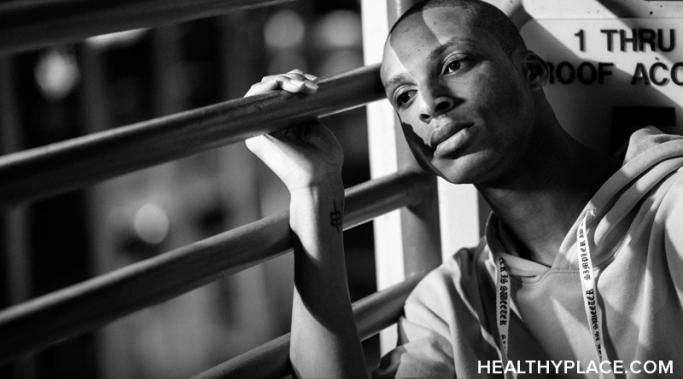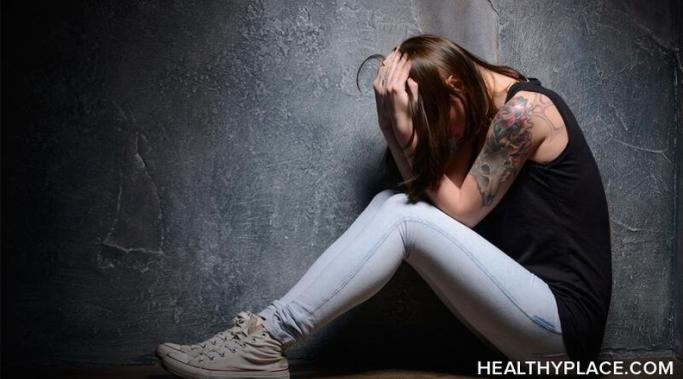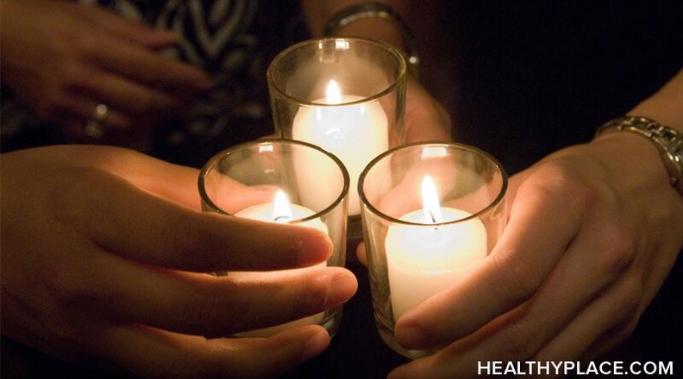Blogs
It was the summer of 2006. I had just completed my master’s degree in photography from Columbia College Chicago. My schizoaffective mania was taking over—yet, I felt very suicidal. It all came to a head on a trip to Door County with my parents and my younger brother. (Note: This post contains a trigger warning.)
When you live with anxiety, the mere thought of joining an anxiety support group can kick the fight-or-flight response into overdrive. To avoid attending an anxiety group with other people, you might be willing to fight tooth and nail to escape into the safety of the space under your bed. However, anxiety support groups offer benefits like the ability to share your experiences and challenges, to be deeply heard, and to offer a listening ear in return. These are only a few of the benefits people can reap by joining a support group for anxiety. Here are six more reasons to join a support group for anxiety.
As September is Suicide Awareness Month, it is only appropriate that the subject of suicide and temporary anxiety should be touched upon in this blog. Like with any mental illness, the specter of suicide is never far from the man or woman with anxiety. When you think about it, this makes sense – to someone weathered and beaten by an unending torrent of stress, suicide can seem to be a logical way to end that stress and keep your mind at peace. This, of course, is a failure of logic, for as the title of this blog makes clear, anxiety is temporary, while suicide is forever. (Note: This post contains a trigger warning.)
Eating disorders have been trivialized for decades. However, people struggling with these illnesses have an elevated risk of death by suicide compared to other psychiatric disorders, with bulimia having the highest attempted suicide rates. High comorbidity associated with bulimia – and the dearth of research – makes it difficult to tease apart what contributes to suicide risk. But it’s important for people to know that both bulimia, and the suicidality that accompanies it, can be treated and overcome. (Note: This post contains a trigger warning.)
As a mental health worker, I am always concerned about how first responders treat mental health concerns and crises. Two such duties are safety checks and dealing with suicide attempts. (Safety checks are when law enforcement checks on someone who has been reported in danger or will possibly harm himself or others.) Here in Toledo, suicide attempts are taken very seriously by emergency services. However, safety checks are of low priority. (Note: This post contains a trigger warning.)
Depression brings about a lot of changes in a person's mind and body, such as feelings of apathy and hopelessness, and headaches and body pain. These changes are typically overwhelming and most of us need to rely on some coping mechanisms to be able to simply function on a day to day basis. Unfortunately, not all coping mechanisms are healthy and can harm the individual, even causing death if left unchecked. Suicidal ideation is one such negative coping mechanism that is best avoided by a depressive. (Note: This post contains a trigger warning.)
Healthy sleep in recovery from mental illness is absolutely vital, but do you know when you're using sleep as a coping mechanism and when you're using it as avoidance? It can be a very fine line, but in this post and video, I talk about some of the good signs and red flags when it comes to healthy sleep in recovery from mental illness.
Years ago, I was the queen of passivity, but the dialectical behavior therapy (DBT) FAST skill helped me overcome it. It used to be that I avoided conflict and difficult conversations at all costs and refused to put my needs and desires first. I would come up with scripts in my head of what to say; however, as soon as an intense conversation would begin, I felt my self-respect fade away ("Show Yourself Respect: How to Communicate with Confidence"). I wished that I could trade in my copious amounts of passivity for self-respect, but something always got in the way. Fortunately, in the past year, I have learned how to maintain self-respect during a conflict by following a few simple steps set out by the DBT FAST skill.
Suicide can be a tough topic to discuss among those suffering from posttraumatic stress disorder (PTSD). Though around 56% of people with PTSD experience suicidal thoughts, ideation, or actions, admitting to having those feelings can feel shameful. (Note: This post contains a trigger warning.)
How can we honor someone who has died by suicide? Since suicide is unfortunately common (it’s the second leading cause of death in the US for people aged 15 to 34), it’s likely we all know someone who has died by suicide. A death in that manner can be a sensitive topic. (Note: This post contains a trigger warning.)









